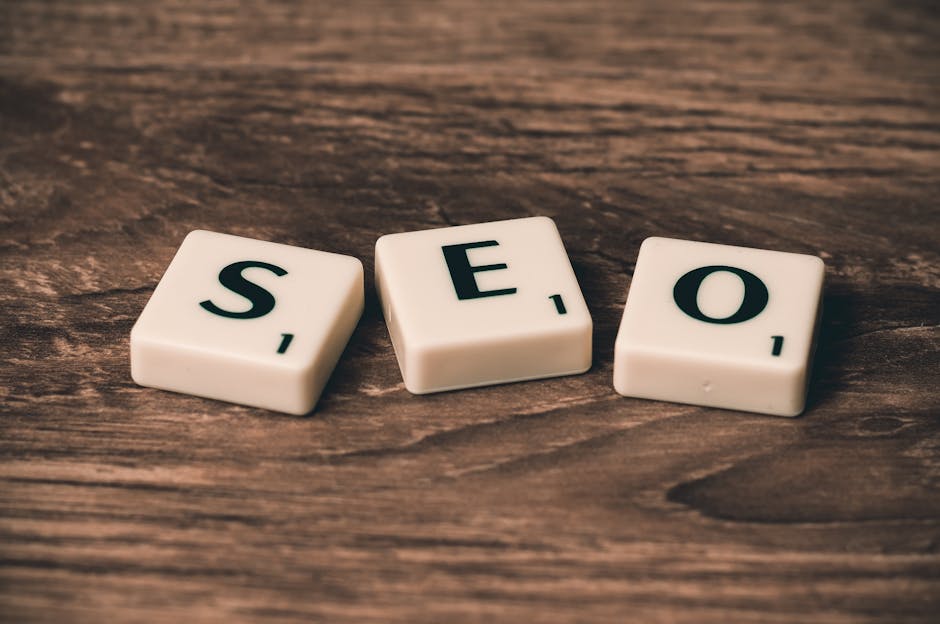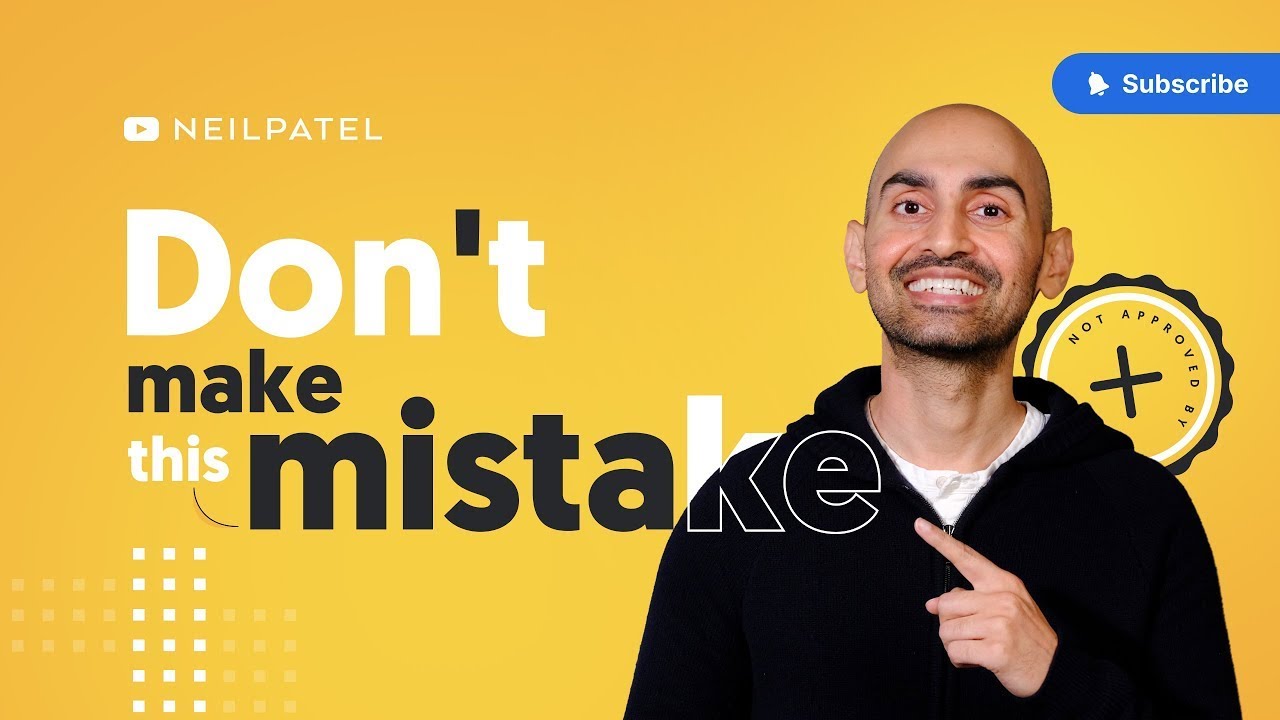This is KILLING Your SEO Strategy (Here’s How to Fix It)
This is killing your SEO strategy, and here's how to fix it. I get some variation of
this question all the time. If you could avoid one SEO
mistake, what would it be? Now, there are tons of big
no-nos when it comes to SEO. The more obvious red flags that can actually get you penalized include things like keyword stuffing, using a ton of duplicate content, (chime)
buying backlinks, things like that. But there's one major issue
I see a ton of newbies make and it's probably not the one you think, because when people think of
SEO, they think of keywords, backlinks, meta descriptions,
and things like that. Can you guess what it is? Let me know in the comments below. The thing I see that people
look over all the time that's killing their SEO strategy is not optimizing their UX. See, search engines don't
just evaluate webpages based on the keywords you use or how many backlinks you have. Your website has to provide users with a high quality experience, or they will 100% seek
out a different website.
Here's how you can optimize your UX so that you can kick your
SEO strategy into high gear. Tip number one, optimize your page speed. 88.5% of visitors leave a website
because of slow load time. Just imagine, you pick up your phone, you go to do a Google search,
you click on a result, one second, two seconds, three seconds, still not loaded, four seconds, five seconds,
six seconds, halfway loaded, seven seconds, eight
seconds, nine seconds, fully loaded. That's a long time. You're going to leave the site. Make sure your code is clean using a CDN, which is a content delivery network, so that way your website is
on servers all over the web. So that way when someone from
India visits your website, they're picking up your
website from a server in India. When someone in California
visits your website, they may pick up your
website from a server in Texas or California or
somewhere on the West Coast.
Tip number two, optimize
your images and content. Updating and republishing old blog posts with new content and
images can increase traffic by as much as 106%. According to HTTP Archive,
images make up a average of 21% of a total webpages weight, so make sure that you're
compressing the images, not in size, I'm talking about file size, so not in dimensions,
but more so file sizes of where you want to compress 'em, and when you update your
content, optimize your images, make sure that they're images on what people are looking for, you're going to be much better off. Tip number three, make sure
your headlines are perfect. 36% of SEO experts said that the headlines were the
most important SEO element. David Ogilvy always used to say, "80 cents on the dollar
spent on the headline." So you got to make sure that
your headline is amazing, and there's a lot of stats
out there that show this.

Eight out of 10 people read a headline, two out of 10 people read
the rest of your content. So you got to really focus on the headline and make it catchy. What I like doing is running A/B tests using paid ads with different headlines to figure out what people like the most. Tip number four, simplify
your website's navigation. 84.6% of web designers believe
that crowded web design is the most common mistake
made by small businesses, and look, simplify your navigation, simplify what's on a page,
remove unnecessary elements, it just makes things easier
for people to navigate. If you're not sure if you're
making things simpler or worse, you can always use analytics
tools like Crazy Egg which shows you where people click. You can also survey 'em, and on top of that, if
you want to do a lot of user testing, check out usertesting.com which can also give you more feedback. Tip number five, improve
your mobile experience. Google recently reported that
60% of searches are completed on your phone. That's a lot. How's your mobile experience? Is it amazing, is it bad? Majority of the people that
visit your website eventually, if not already, will
be from mobile devices.
Look at a lot of social
networks that you use, Instagram, Twitter, TikTok. Where do you find them? Mobile devices. It's super important that
you optimize your site to be responsive so that
way your website can expand if someone has a big desktop computer, a laptop, a iPad, a small mobile phone, or a big mobile phone, a
responsive design adapts so that way it fits all these devices, and you can also use tools like browser testing
to figure out if, hey, is my website actually responsive
and working effectively, depending on the operating
system, the phone type, the screen size, and
even the browser type. Now, if you need help with your SEO, check out my ad agency, NP Digital. If you enjoyed this
video, like it, share it, tell other people about it, and leave a comment if
you have any questions..



